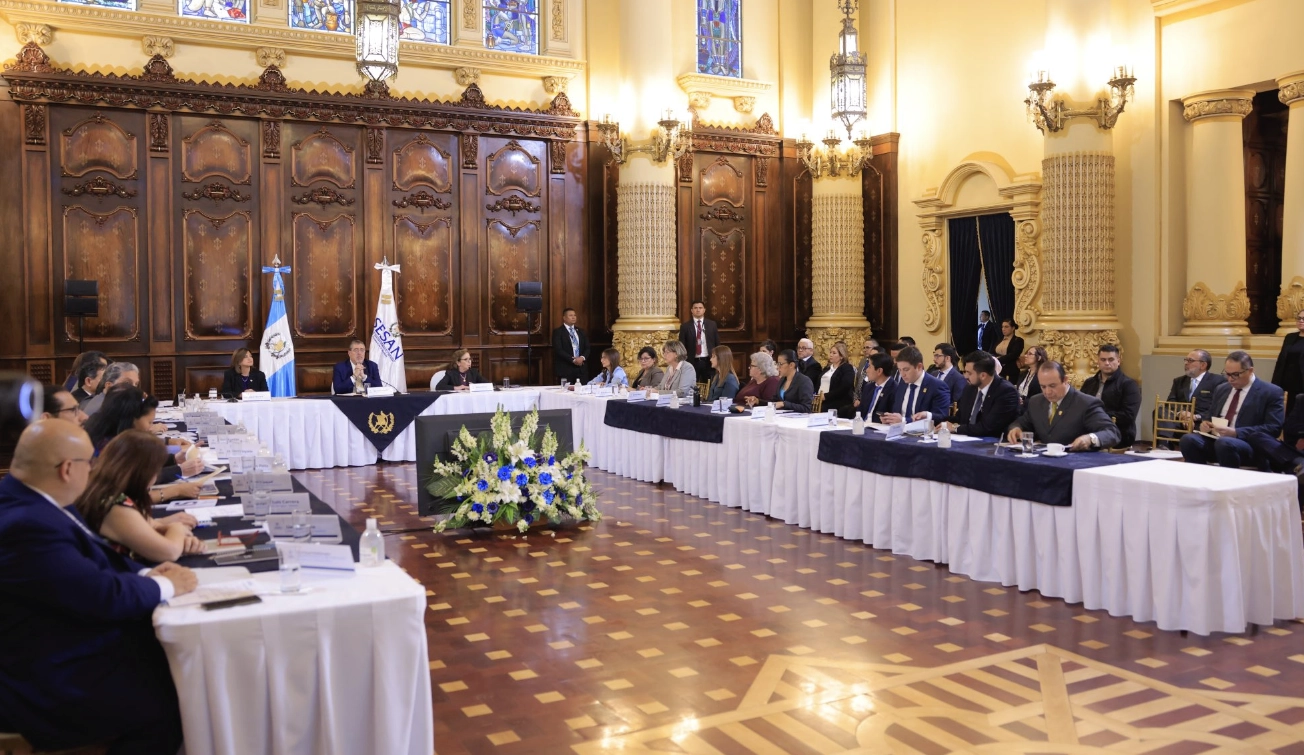The outcome of the 2023 presidential election in Guatemala came as a surprise to traditional political actors. The sectors of economic and political power in the Central American country did everything to try to maintain control over state institutions — and thus continue with the practices of plundering the public budget — in the face of campaign promises by the now president Bernardo Arévalo to fight corruption and strengthen the judicial system. Now that Arévalo is president, will it be necessary to create a body with international support or rather the return of a Commission like the extinct International Commission Against Impunity in Guatemala (CICIG)? Or will the government be able to do it, even with institutions that, according to analysts, are co-opted and infiltrated by corrupt forces?
More than opposition
The strategy of the traditional sectors to ensure control of power was based, even before the beginning of the campaign, on leaving out of the competition several opposition candidates such as Carlos Pineda, a businessman who used the TikTok network to position himself among the strong contenders, and whose rapid rise made the official party Vamos, of former president Alejandro Giammattei, uncomfortable.
Also, through the influence over the Supreme Electoral Tribunal and the total control of the high courts, the Supreme Court of Justice and the Constitutional Court, the Movement for the Liberation of the Peoples (MLP), formed by Thelma Cabrera, a Mayan Mam woman, and the former human rights ombudsman, Jordan Rodas, were left out. On the other hand, the MLP, with its proposal for a plurinational state, established itself as the anti-establishment option but was also left out of the race.
After eliminating the main opponents, the proposal of an anti-corruption government of Bernardo Arévalo, who was not in the first position according to the polls before the election, ended up attracting the citizens. But now, to comply with this proposal that seeks to strengthen or rather recover the institutions, the president must recompose the Public Prosecutor’s Office, the entity in charge of criminal investigation and prosecution.
The return of CICIG?
According to the analyst and expert on transparency and open government issues, Marvin Flores, an eventual return of CICIG is, in the current context, almost impossible. For the analyst, the corrupt actors that “have co-opted the institutions through the so-called corrupt pact” that was consolidated by outgoing President Alejandro Giammattei must first be purged.
This, however, would be very complex to carry out. Although Arévalo has the popular support and the power enshrined in the executive body, the same does not happen in the other branches of government such as the courts and the legislature. Arévalo, in addition, according to this expert “is a democrat and would not be willing to take radical measures to clean up the levels of corruption inherited by his administration, not only from the last one but from several administrations that were dedicated to infiltrate and co-opt state institutions”.
This difficulty worries the international community, especially the United States and the European Union, which have been reducing influence over Latin American and especially Central American democracies at a time when countries such as China are opening a field in the region through investments or speculation of a possible appearance of Russia with military cooperation agreements.
The State of Guatemala is indeed co-opted, and its transformation requires a reform of the judicial sector, in addition to a purge of corrupt actors who are entrenched in the institutions responsible for ensuring compliance with the laws.
In Guatemala, there is no system of checks and balances. The Comptroller General’s Office, the Public Ministry, and the Attorney General’s Office, entities in charge of law enforcement, have been used at the whim of corrupt actors who have consolidated their positions. In addition, behind these corrupt actors there is a business economic elite that is now also a financial elite that is not interested in the existence of institutions, either local or international, that put at risk their “golden goose”.
In this context lies the importance of the former CICIG in Guatemala as a sui generis body. In Guatemala, it is very difficult for a local body to investigate corrupt characters due to the permeability of the state.
During its existence, CICIG first investigated drug traffickers, then military officers involved in crimes against humanity, and later corrupt politicians and businesspersons. And it was during this last stage, directed by Iván Velásquez, that the government of Jimmy Morales finally canceled the agreement.
Therefore, although analysts and the population in general may agree that the creation of a body such as CICIG or its return is urgent, within the current configuration of the power board it seems to be almost impossible for this to happen.
*Translated by Janaína Ruviaro da Silva from the original in Spanish.













